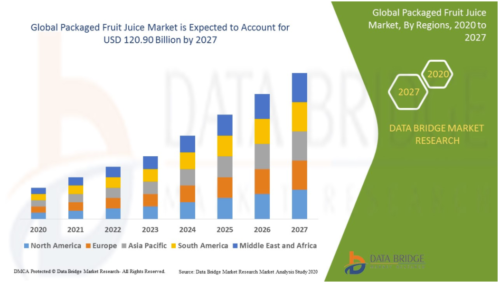I’m on the visionary panel. To register, click here.

An additional observation in the fruit drink study I recently discussed was a reduction in purchases of 100% juice, probably because it is so hard to tell the difference without careful scrutiny of labels (hint: look for 100%).
100% juice is a better option than fruit drinks because it has a better balance of nutrients and no added sugars. But it is still sugary because so many pieces of fruit go into it [really, fruit is the best option].
The orange juice industry is worried about decreasing sales.
The worldwide market for juices is increasing.

The juice industry would like it to grow even faster.
I was interested to see juice marketing materials emailed to dietitians.
Want to take a guess as to who paid for these messages?
Hot summer temperatures combined with a population eager to get outside and get moving means risk of dehydration is high. In addition to water, consider including 100% juice as a healthy, nutrient dense beverage option. In addition to rehydration and increasing fruit intake, two new studies show 100% juice has many other health benefits.
- A recent UK study published in Nutrients found moderate consumption of 100% fruit juice, which aligns with the US Dietary Guidelines, does not increase the risk of obesity, type 2 diabetes, cardiovascular disease or poor glycemic control. Furthermore, regular daily consumption of 100% juice, may confer health benefits related to vascular function and reduced blood pressure. Emerging evidence shows there may even be a positive impact on cognitive health. [Funding: This research was funded by an unrestricted grant from the Fruit Juice Science Centre].
[Funders: a consortium of orange producers, juice manufacturers and packaging companies based in Europe and Brazil under the umbrella of the European Fruit Juice Association (AIJN)].
- A second review study, published in Frontiers in Immunology, found that citrus juice, contains key nutrients and bioactive substances that help our immune system to work efficiently and reduce inflammation. [Funders: a consortium of orange producers, juice manufacturers and packaging companies based in Europe and Brazil under the umbrella of the European Fruit Juice Association (AIJN)].
And how do we know this is all about marketing? Try this Infographic: Squeeze More Profits From Juices.
Reference: For a summary of research on the “funding effect”—the observations that research sponsored by food companies almost invariably produces results favorable to the sponsor’s interests and that recipients of industry funding typically did not intend to be influenced and do not recognize the influence—see my book, Unsavory Truth: How Food Companies Skew the Science of What We Eat.